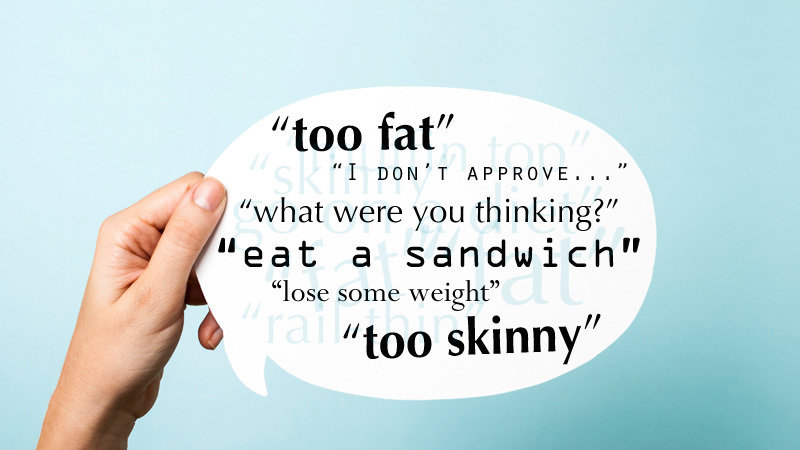The impacts of body shaming
Body shaming occurs nationwide, beginning in elementary schools and extending through high school and even college. In fact, body shaming can affect adults as well in their workplaces or social lives. According to the Orthodox Dictionary, body shaming is, “the action or practice of humiliating someone by making mocking or critical comments about their body shape or size.”
Body shaming often takes the form of name-calling. Names like Fatty, Chicken Legs, Stick, Shrimp, Midget, Giant, and many others are intended to cause people embarrassment for being overweight, too skinny, too tall, or too short. It is estimated that body shaming is the most common form of bullying.
Though the intent of most body shaming may be humor, the actual results are quite serious. Verbally body shaming someone can lead to suicidal thoughts, aggression, and depression. According to CBS News, “teens who perceived themselves at either weight extreme — very fat or really skinny — were more than twice as likely as normal-weight teens to attempt or think about suicide.”
Unfortunately, body shaming is extremely common. According to Bullying Statistics, “94 percent of teenage girls have been body shamed.” The site also adds that nearly 65 percent of teen boys have reported having been body shamed as well. While it is far more common for it to impact girls, this shows that no gender is protected from body shaming. While girls are expected to be thin and attractive, boys are expected to be muscular and athletically built.
Feelings of shame for one’s body can be worsened by advertisements and the entertainment industry. People are depicted with abs of steel, hourglass shapes, and flat stomachs. There is little if any representation of body types that accurately represent society’s members. Most magazine and advertising images are heavily Photoshopped to mask imperfections. The result of all of this is that people feel insecure about their bodies.
Have you ever scrolled through the comment section on social media and seen really mean comments? Yes, these body shaming practices can even happen online. “Internet trolls” or “Internet Haters” can be found on commonly-used social media platforms such as Snapchat, Instagram, Facebook, and blogs. Even the Youtube comment section can be a source of negative comments geared toward posters’ appearance. People who criticize others online are said to have “keyboard courage”–a feeling of security that comes from being safely behind a screen and therefore distanced from the person being offended. Psychologists say that people will be far crueler online than they would be in person since the physical distance makes people lose empathy.
Body shaming is a very serious matter in our society, one that has been around forever but that has been worsened by unrealistic depictions of the human body and online criticism. These mean comments cause psychological harm and leave lasting scars on people’s self-concept and body image.







